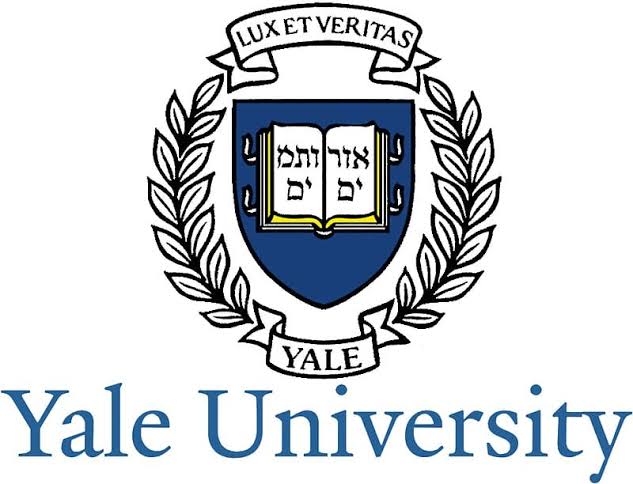Monies are easier spent, especially if you didn’t work for them. As a college student, you can’t escape expenses. Some expenses include tuition, housing, books, supplies, food, etc. What if we told you there is a way you can measure up and manage your expenses as a college student?
Having your money in the best savings account for college students is the best way o manage your money. It will also help you to avoid unnecessary expenses.
In his article, we have outlined the best savings account for college students and the best banks and rates, their advantages and disadvantages over the others. Sit tight and read to the end.
Table of contents
- Are the Best Savings Accounts for College Students Worth It?
- Why you need to save with the best savings account for college students
- How to save money with the best savings accounts for college students
- Overview
- 15 best savings accounts for college students
- #1. Chase College Checking Savings Account:
- #2. Affirm Savings Account:
- #3 Synchrony High-Yield Savings:
- #4. Alliant High-Interest Checking Account:
- #5. Bank Of America Advantage Savings Account:
- #6. Ally High Yield Savings Account:
- #7. CHIME Savings Account:
- #8. Discover Cashback Debit Online Savings Account:
- #9. CIT Bank Savings Builder Account:
- #10. Digital Federal Credit Union:
- #11. VARO Savings Account:
- #12. Navy Federal Credit Union Basic Savings:
- #13. CARO Savings Account:
- #14. TIAA Bank Basic Savings Account:
- #15. Golden Credit Union Student Checking:
- Conclusion
- FAQs on Best Savings Account for College Students 2024
- References
- Recommendation
Are the Best Savings Accounts for College Students Worth It?
Imagine saving up to a dollar daily for a year or restricting your excess spending. Saving up money, even the little amount that means nothing to you in the meantime, but, this can be a lot of money in the long run. You can also invest in your savings if you would like to accumulate more.
This leaves us with the question, “Why don’t you manage your monies well? Why don’t you save?!”
Read also: Scholarships For Banking Finance Students
Why you need to save with the best savings account for college students
Is having the best savings account for students necessary? This is one of the basic financial advice. Although students know the importance of saving up money they often lose sight of it. This makes them spend way more than they can afford.
Some benefits of saving money, especially with the best savings account include:
#1. It provides financial security and freedom, securing you in financial emergencies.
#2. By saving money, you can avoid debt, which relieves stress and unnecessary challenges.
#3. Saving money provides you with cash reserves that you can use when and how you want.
#4. It makes you take calculated risks with less worry.
#5. Low risk: Best savings account for college students by their very nature, don’t lose money. In many investments, you may lose money over some time, but with a savings account, your balance won’t go down. It will only go up.
#6. Banking with the best savings account is quite straightforward. This means no monthly fees, easy access, and strong online features.
How to save money with the best savings accounts for college students
As a student, the importance of saving money in the best savings account can’t be over-emphasized. To get started, you’d need a guide.
Below is a guide on saving money with the best savings account as a college student.
#1. Have a goal:
Having a reason why you should save money in the best savings account for college students can be critical. But if you want to stick with a savings plan for the long term, then you should have a goal.
If you don’t have a goal, why save for the future when you can spend on what you want now, right? The truth is that even if you have no valid reason to save now, you’ll likely find one soon. You don’t want to be in a situation where you need to get something done with your money, but you don’t have any at hand.
#2. Be careful about your expenses:
Expenses are deadly to savings, no matter how little they later amount to a meaningful amount. Most college students are careful with huge purchases without being reckless with small expenses.
Be wise and cautious about your choice of spending, for it determines how large your savings will be.
#3. Focus on your future:
As long as your focus is on the goal, then nothing else matters. Unnecessary expenses on present satisfactions that only disappear with time are not ideal. Know what you want, and how you want it, budget your money, make a savings plan and achieve it.
Recommended: Master’s Degree Scholarships For Microfinance Students
#4. Work hard:
Wealthy people work harder than the common person, at least at the most productive age. Thus as you increase your income as a student, save a larger part of it than ever before.
“I like business, and the truth is I save way more than I spend. I invest. I plan for the future. I have a special eye for opportunities and work harder than anyone might expect.” – Sofia, highest paid actress in American television from 2013 to 2020.
#5. Be consistent:
Saving money in the best savings account for a college student can be exhausting. You don’t spend like you used to, you deny yourself the things you want over the things you need, and most times, you don’t live the good life.
But then, imagine clearing all your debts and having bills paid off, or you have money on reserve. Having savings as a student pays off, and you should make a habit of savings a priority.
Overview
The best savings account for college students often has the same basic structure as other financial institutions. Because students are still learning to manage money and navigate their financial lives, these institutions may waive maintenance fees, including allowances for students with lower balances, offer free ATM withdrawals, etc.
Here is a compiled list of the best savings accounts for college students. This list takes flexibility, convenience, and affordability into consideration.
- #1 Chase College Checking
- #2 Affirm Savings Account
- #3 Synchrony High Yield Savings
- #4 Bank Of America Advantage Savings Account
- ·#5 Ally High Yield Savings Account
- #6 Chime Savings Account
- #7 Discover Cashback Debit online savings Account
- #8 Digital Federal Credit Union
- #9 Alliant High-Interest Checking Account
- #10 Trust Student Checking Account
- #11 VARO savings account
- #12 Digital Federal Credit Union Primary Savings
- #13 Caro Savings Account
- #14 TIAA Bank basic savings account
- #15 Golden Credit Union Student Checking
15 best savings accounts for college students
We selected the traditional best savings for college students with hundreds or thousands of physical branches. These banks have a large national presence making it easier to access branches/ATMs when you’re at school or anywhere.
For online banks, we chose accounts with robust features, such as a budgeting tool and savings buckets.
Read also: Best Scholarships For Non-traditional Students
#1. Chase College Checking Savings Account:
Chase has over 4,700 branches and 16,000 ATMs nationwide. You are likely to find a branch/ATM at school or anywhere.
There are no monthly fees during your first five years in college. You can waive the charge by setting up one monthly direct deposit or maintaining an average daily balance of $5,000. This is only for students who have been in school for five years or more.
Pros:
- No monthly maintenance fee for the Chase savings account linked to this account.
- No required opening deposit
- Over 4,700 branches
- Relatively easy to waive the monthly fee
- You can earn a $100 sign-up bonus if you make 10 transactions in the first 60 days. They have an APY of 0.10%
Cons:
- Not enrolled in overdraft protection? You may have to deal with overdraft fees and pay a $3 to $5 fee when you use a non-Chase ATM
- $6 monthly maintenance fee
- $3 to $5 out-of-network ATM fee
- · 3% foreign transaction fee
- · $34 overdraft and non-sufficient funds fees
#2. Affirm Savings Account:
Affirm is an online company with services around its mobile app. As a result, you should only open an account if you’re comfortable banking online from anywhere. It was once a shopping app before going into the banking industry.
Affirm’s mobile app boasts a high-performance rating of 4.9 stars out of 5 on the Apple and Android app stores. Affirm allows you to open your account, make transfers, and everything in between.
Pros:
- High Annual Percentage yield of about 1.25%
- User-friendly online interface
- No minimums or account maintenance fees.
- There are no balance restrictions on this interest rate,
Cons:
No branch access or financial education tools
#3 Synchrony High-Yield Savings:
The Synchrony High Yield Savings account is a solid savings option for students. Their savings accounts APY is better than other APY’s out there, but, Synchrony’s rate is still well above the national average. It is best for students who are looking to earn interest, specifically.
Pros:
- Good earnings on 1.65% APY on all balances
- No minimums or monthly maintenance fees
- Easy-to-use account
- Synchrony doesn’t charge ATM withdrawal fees,
Cons:
- Not student specific
- Only online bank
- $5 in domestic ATM fee reimbursements.
#4. Alliant High-Interest Checking Account:
Alliant Credit Union provides access to over 80,000 fee-free ATMs. You’ll get up to a $20 monthly ATM rebate if you use an out-of-network ATM. There is no monthly service fee or minimum balance requirements.
Alliant also has significant interest rates for its checking accounts, paying 0.25% APY on your checking balance. You can also make mobile deposits.
Pros:
- Earn interest of about 0.25% APY
- There is no least opening deposit
- No monthly maintenance fees
- $20/month in out-of-network ATM fee refunds
- No overdraft and incoming wire transfer fee
Cons:
- Compounds interest monthly, not daily
- $25 outgoing wire transfer fee
- Alliant only has one physical branch location; thus, banking in person may not work for you.
#5. Bank Of America Advantage Savings Account:
Bank of America has over 4,200 branches and 16,000 ATMs nationwide. You can access a branch/ATM from anywhere and at any time. Monthly fees are not applied to a student under the age of 24.
The Bank of America operates a “Keep the Change program” that helps you save automatically. You’ll need at least $100 to open an account. Like many brick-and-mortar banks, Bank of America pays a low-interest rate on your savings balance. You’ll want to look at an online bank if you value earning a good interest rate.
Pros:
- There are no monthly fees in the first 6 months for new accounts.
- There are no excess withdrawal fees for an account with at least $20,000 or if you’re a Preferred Rewards customer
Cons:
- Low APY of about 0.01 to 0.04%
- Compounds interest monthly, not daily
- $100 opening deposit with an $8 monthly service fee
- $10 excess withdrawal fee
#6. Ally High Yield Savings Account:
Ally is an online-only bank that pays one of the highest savings APYs in the industry. There is no deposit or monthly service fee. You can speak to a live customer service representative 24/7, either over the phone or via online chat.
Ally is part of the “Allpoint ATM network”, so you have free access to over 40,000 ATMs around the USA. Ally makes it easy to save for specific goals. Also, it helps you track your savings account progress and stay motivated.
You may decide to open a separate account for each goal. Ally’s bucket feature allows you to save for many goals in one account. Ally comes with other exceptional features. It’s rated among the best savings accounts for college students.
Pros:
- High APY of about 1.40%
- No least amount for opening deposit
- No monthly service fees
- You can save for different goals
- Highly rated-online banking
Cons:
- There are no physical branch locations, thus impossible to deposit cash
- Ally reimburses up to $10 per month in out-of-network ATM fees.
#7. CHIME Savings Account:
CHIME is an online-only account that combines some of Bank of America’s and Ally’s benefits. Its goal is to save with ease and pays a high-interest rate.
Chime is part of the MoneyPass and VisaPlus Alliance ATM networks, thus easier access to ATMs
Read also: Student Visa Without A Bank Statement
Pros:
- Competitive APY of 1.00%
- No least amount for opening deposit
- No monthly service fee
- Rounds debit card purchases to the nearest dollar and saves any spare change.
- Option to automatically save money every time you purchase or pay a bill with your Chime Visa Debit Card.
Cons:
- Must open Chime Checking Account before savings account
- Only one location to deposit cash
#8. Discover Cashback Debit Online Savings Account:
Discover Bank operates only online and has no branch locations. The bank has a highly-rated mobile app, a user-friendly online dashboard, and 24/7 customer service. This is an ideal option for students who are comfortable banking online.
The Discover Bank Online Savings Account features a solid interest rate of 1.30% APY. Having a daily compound Interest, your money will grow the fastest rate possible. Like most of Discover’s products, they help customers keep money in their pockets.
Pros:
- Good APY of about
- No monthly or insufficient funds fees
- Simple, easy-to-use platform
Cons:
- It is an online-only bank
#9. CIT Bank Savings Builder Account:
The CIT Bank Savings Builder Account offers the potential of a high APY of 0.80%. To earn its interest, you’ll need to maintain a monthly $100 deposit or have a $25,000 amount. If you cannot meet the requirements for the 0.80% APY, your rate will drop to 0.36%.
To become a Savings Builder Account holder, you must deposit at least $100 in your account at the opening. After your initial deposition of $100, there are no account minimums or monthly maintenance fees.
CIT Bank has a large online presence, so you can manage your account online, on your phone, or by calling customer service.
Pros:
- Good interest potential
- Account features encourage saving
- No monthly fees
Cons:
- Must meet certain requirements to earn APY
- $100 minimum to open
#10. Digital Federal Credit Union:
With DCU’s sizable international network, you’ll likely be able to access a fee-free ATM. Though this Credit Union only has a few branches, it offers shared banking with over 5,000 locations making it easier for account holders to reach the bank.
DCU offers membership to any immediate family of current members. The first $1,000 you deposit in a Digital Federal Credit Union (DCU) Primary Savings account will earn interest at a 6.17% APY.
By then, any money you deposit after that receives a lower 0.15% APY. It is best for those who want a high yield without depositing much money.
Pros:
- Extremely high APY on first $1,000
- Low least deposit amount
Cons:
Low APR after the first $1,000
#11. VARO Savings Account:
Varo savings account isn’t technically for students but has many features. These features benefit everyone, including students.
The account has a 1.20% APY, one of the better rates currently on the market. You can also gain access to a higher APY of 5.00% by meeting the following terms and requirements during each qualifying period:
Make sure your Varo account balances are above or equal to $0 at the close of the month
- Receive total direct deposits of $1,000 or more each qualifying period.
- Do not exceed a savings balance of $5,000 at the end of each business day.
There are some minimum balance requirements for these accounts. Varo’s services are available only online, but the bank’s mobile app has excellent ratings. You can access all the features Caro’s services offer through this platform.
You’ll access mobile check deposits and automatic savings tools. You can still contact their customer care line if you have specific questions.
Setting up an account with Varo is quite easy. You first need to open a Varo Bank checking account. Once you have through this step, you can set up your high-yield savings account with Varo.
Pros:
- Great savings potential
- No monthly fees
Cons:
- Not a student-only account
- Very specific APY requirements
The NFCU Basic Savings account is another option among the best savings accounts for college students. It’s important to know that this institution isn’t student-centric. Instead, its benefits align well with most students and their parents’ needs.
Especially for those without a lot of money to deposit, their $5 minimum deposit makes things easy. NFCU affords account holders access to around 30,000 fee-free ATMs. NFCU also has a proprietary network partnership with the CO-OP Network and CashPoints.
You can do so at NFCU and CO-OP ATMs if you need to deposit. There may be a waiting period for processing. As an NFCU member, you get many perks as benefits. These perks include special rates on mortgages and auto loans to discounts on certain retail purchases. You can also access exclusive banking offers.
Recommended: Private College Loans For Students
There are a few ways to become a member of NFCU:
- If you are an active or former military or national guard member
- If you’re a Department of Defense officer candidate, reservist, or civilian
- As an immediate family member of a current member.
Pros:
- No monthly maintenance fees
- Lenient membership requirements
- Above average APY of about 0.25%
- Provides a simple account with benefits.
Cons:
Not necessarily student-centric
#13. CARO Savings Account:
CARO savings account provides personalized financial guidance that will benefit your financial future.
They offer real problem-solving solutions for real people. That means they care about teaching you the importance of your finances.
This helps you gain control of your financial future and provides opportunities to start investing in yourself. They help you establish a basic savings account.
Pros:
- Entry membership with the least amount of $25
- Gives you a share of ownership in the credit union.
- They encourage smart financial habits.
- They pay dividends on most savings accounts.
Cons:
Their branches are few.
#14. TIAA Bank Basic Savings Account:
The TIAA Bank Basic Savings Account is a solid option for students looking to open a savings account. It becomes a particularly attractive option for anyone that already banks with TIAA or lives in Florida near any TIAA location.
This account requires a low least amount of $25 to open. Once you meet this requirement, you’ll earn an APY of 1.00% on all balances. You’ll avoid the $5 monthly minimum fee by keeping at least $25 in the account.
Another great feature of this account is that TIAA will reimburse ATM fees for any account with an average daily balance of at least $5,000. TIAA will reimburse up to $15 in monthly ATM fees for accounts with less than this.
With TIAA, you can visit a physical bank location to conduct business, but you can also use the bank’s highly-rated mobile app.
Pros:
- Solid APY
- A good range of other baking products is available
Cons:
·Not student-specific
#15. Golden Credit Union Student Checking:
The Golden Credit Union Student Checking Member is a member of the FDIC. This is a solid student account with no monthly fee, but only physical branch locations are in certain parts of California.
This basic checking account is designed to help you develop a good financial history. Their smart checking account offers you a variety of ways to manage your money. You’ll have both options if you need to write a check or use a debit card.
With their banking solutions, you can check your account balance, perform bank transactions, and pay your bills!
Pros:
- No monthly maintenance fees
- No monthly service charge
- · No minimum opening deposit
- No minimum balance requirements
Cons:
- You can only request a conversion to their Free Checking account after 12 months.
- Their APY is as low as 0.05%
Conclusion
Knowing the reasons to save money can be critical if you want to stick with a savings plan for the long term. You need help understanding the importance of saving money with the best savings account for college students.
Your money, they say, is where your mind is. Put it to rest by banking with the right institution that understands you as a student. A penny saved is a penny earned.
FAQs on Best Savings Account for College Students 2024
A savings account is necessary for college students living on a tight budget. Maintaining an emergency fund will help you through those unexpected financial crises. Sometimes crises may be your tuition fees, food, housing, medical bills, etc.
It is hard to say which is the best from the list of savings accounts for college students mentioned here. They all come with unique features that benefit college students a lot.
If you’re on top of your budget and not on excess spending, we recommend that college students keep around 1 – 2 months’ income in check. You can have everything else in a high-yield savings account or a retirement fund.
Looking at data from the Bureau of Labor Statistics (BLS), statistics have shown that by the age of 25, you should have saved about $20,000.
Having a personal bank account with the best savings account for college students is the best and will help you as a student.
Where accessories, books, etc., are an everyday need for a student, you need the best bank that understands you as a student.
References
- smartasset.com – checking-account/best-savings-accounts-for-students
- businessinsider.com – best-bank-accounts-for-college-students
- investopedia.com – best-student-bank-accounts
- wikipedia.org– Savings_account
- thecollegeinvestor.com – best-savings-accounts-students
Recommendation
DISCLOSURE: This post may contain affiliate links, meaning when you click the links and make a purchase, we receive a commission.





3 comments
Comments are closed.